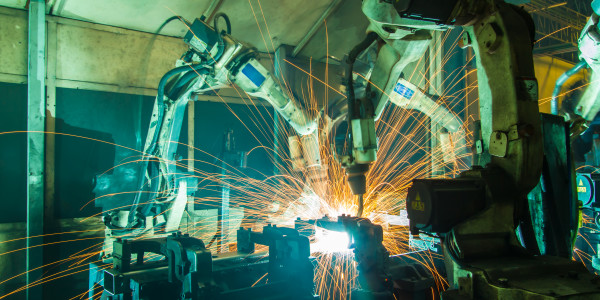People have worried that automation will result in an unemployable human work force for more than 200 years. However, history shows us that automation, machines, and robots do not lead to mass unemployment. Instead, automation increases production, eliminates inefficiencies, and leads to new types of work. Robots aren’t taking all of our jobs, but automation does affect employment.
We’re not seeing a robot takeover
Research from economists at MIT and Boston University examines how industrial robots and automation affects employment in the United States by region and industry.
The study examined data from 1990 to 2007. Over this period of time, installing one robot per 1,000 workers lowered the national employment-to-population ratio by roughly 0.2 percent. However, automation’s actual effect on employment varies greatly by industry.
For example, each robot installed in the manufacturing sector displaced 3.3 workers on average.
Four manufacturing industries made up 70 percent of new robot installations. Automakers accounted for 38 percent of robots in use, electronics made up 15 percent, plastic and chemical industry made up 10 percent, and metal manufacturers made up 7 percent.
Another study examined how automation affects employment in the Netherlands. According to their data, workers who are highly-educated, highly-skilled, and highly-paid are more likely to be affected by automation. However, the lower-skilled, lower-educated, and lower-paid workers suffer more hardship due to increased automation even though they are less likely to be affected by it.
Those high-skill workers are more likely to leave their job because of automation. However, they’re also able to find new work quickly. It’s more difficult for workers with less training and fewer specialized skills to find new work when they leave jobs due to automation.
Machines don’t replace — they displace
Throughout history, new technologies, new machines, and new types of automation have been introduced to the workplace. We have yet to see a scenario where robots fill the need for human workers. Instead, humans keep finding new ways to be useful.
Cars replaced stage coach drivers, but that created the need for delivery drivers, taxi drivers, auto assembly workers, and mechanics.
Automation makes work safer, easier, and more efficient. If you run Indramat servos, you see this firsthand. Make sure that your machines keep doing their job. Call 479-422-0390 for Indramat service and support.
